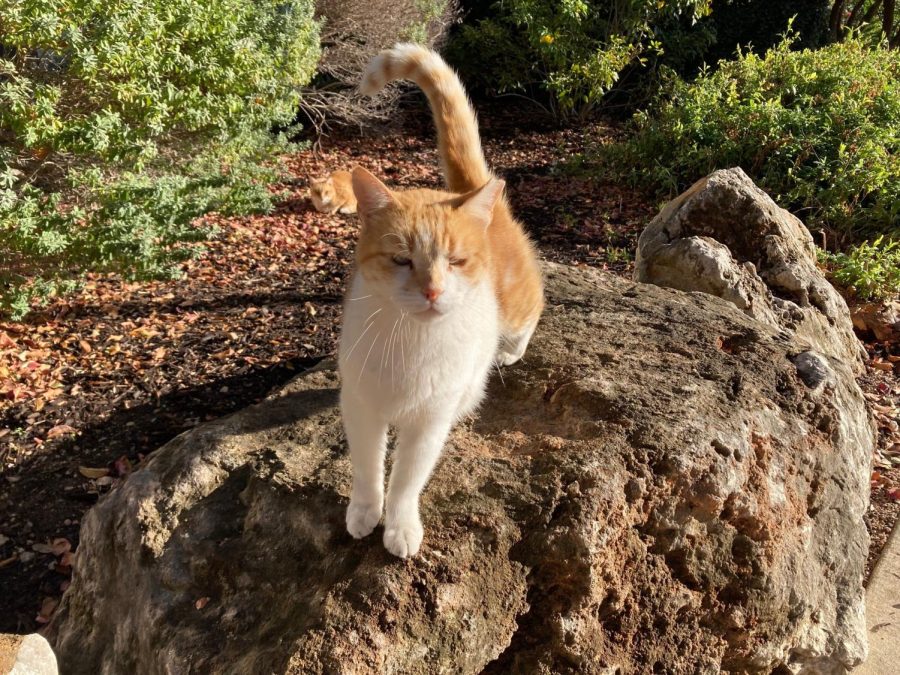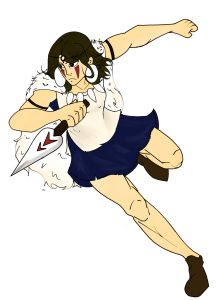Roadrunner Cat Coalition takes care of felines on campus
March 8, 2022
The Roadrunner Cat Coalition (RRCC) is a volunteer-based faculty/staff organization focused on maintaining and caring for the felines populating the UTSA campus. The organization was founded in 2006 after current Treasurer Karen Williams spotted a cat on campus.
“I saw a cat down below the Business building patio and it looked like it was injured, and so that’s probably the first time I realized there are cats that live here,” Williams said. “We started feeding the cats and then we started asking around and finding out that there are other cats around campus and there were, at that time, a couple of other individuals who had been feeding the cats in different places.”
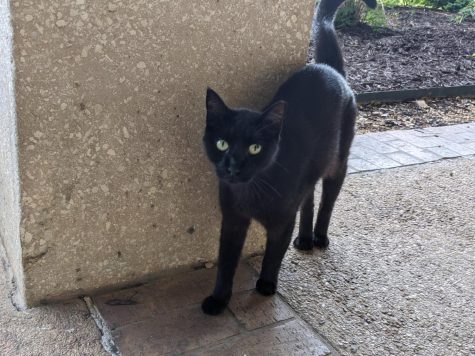
As time went on, they began to create their own organization dedicated to the cats.
“We just got more organized and then we formed the Cat Coalition. Just like the student organizations have to register every year. We have to register every year,” Williams said. “We’re basically faculty and staff, and we started getting more organized feeding them and then organized a massive trapping effort so that we could get them neutered and get their rabies shots.”
From there, the group decided the next step would be to spay and neuter the cats. According to Williams, when the organization first began caring for the cats there were between 60 and 70 around campus, so getting the cats fixed helped stabilize the population. Currently, there are 10 cats that are cared for by the coalition.
The organization has a schedule that indicates when each member is set to feed the cats at their respective locations. In addition, the feeder for the day sends an email to the coalition letting them know the cats have been fed and also updating about any new cats, injuries or if a cat has gone missing.
“We feed them every day even when there is bad weather. Last year, when we had that really bad cold freeze and it was like frozen for days, somebody got out here every day, but there was only one day that somebody wasn’t able to get out. We are pretty dedicated to taking care of them,” Williams said.
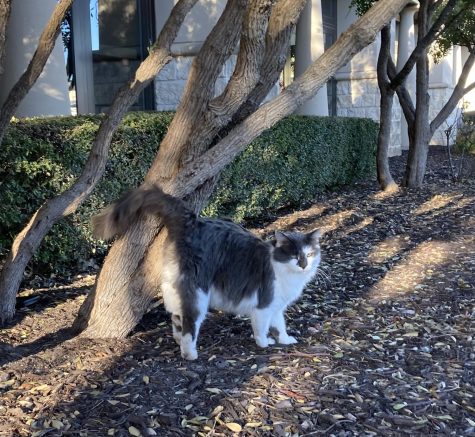
The coalition does not receive any money from the university and operates solely on a volunteer-based system. The organization does have an Amazon wishlist on their Facebook page where folks can donate. Alternatively, individuals can donate directly to the cat’s veterinary bills should they become ill, injured or need to be neutered or spayed.
Although the coalition is certain about how many cats are currently on campus, they are less certain about how they end up there in the first place. Some cats were born on campus; they speculate that some come from across UTSA Blvd. from apartments and the nearby subdivision; while some are dumped on campus. Others come from students who live on campus.
“I think they are getting more lax about students having pets in their rooms, but before students weren’t allowed to have them, but they would get them anyway, and then one of the cats I have is from campus and we’re like 99% sure she was from a dorm,” Williams said.
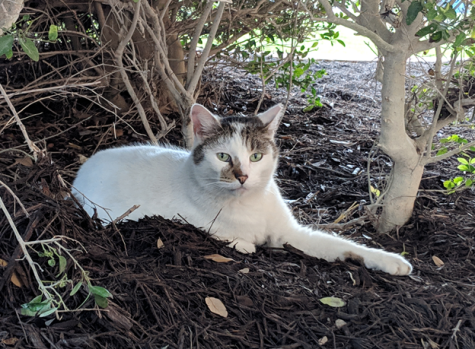
Williams recalled an incident that occurred a few years ago. The coalition received a call from university facilities because there was a cat wandering the halls of Chisholm. There were not any cats registered for that floor, so they are fairly certain the cat belonged to a student.
The particularly friendly cats are fostered by a member of the organization and then placed for adoption. If a cat is ready to be adopted, an email will be sent to the coalition’s mailing list or posted on their Facebook page.
“Usually it’s word of mouth or right from the email list of supporters on campus. And then we all have our own connections too because a lot of the other people rescue in their own neighborhoods,” Williams said.
Williams addressed the emotional toll this takes on those in the organization.
“We’ve invested a lot of emotional energy. When you rescue these little kittens and take care of them, you want them to be safe and not have to go out back to the outside,” Williams said. “So we’re pretty particular.”
Williams, who has seven cats herself, explained her favorite part about working with the coalition.
“It’s the cats and everybody will say that. Sometimes that’s the best part of your day especially when you’re having a bad day. You know, you’re helping them, especially the ones you know and the ones that have been here, you build a relationship with,” Williams said. “I’ve taken care of some of these cats on campus, like the ones that were born here, longer than some of the ones that are my own pets. You develop a relationship with them even though they’re feral cats, and most of them you can’t pet. I feel good about being able to help them, but mostly it’s just seeing those cats and they’re the ones that come running and the ones that will let you pet them and it’s great.”
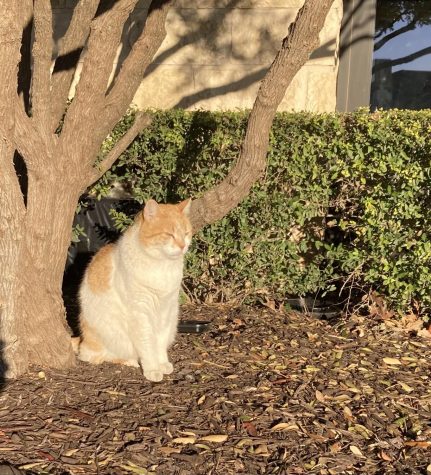
Williams also mentioned her favorite part was meeting cat-lovers from all over campus.
“We have the Associate Dean of Honors College, multiple faculty members, people who are directors of programs; we have people all over, in all colleges, the staff, the facilities people, the maintenance people, the grounds people, the Police Department people. Some of these are people I would have never spoken to,” Williams said. “So meeting all the really great people on-campus in all these different areas, you know who have helped with the cats and who will call us. The people in parking and transportation that give you the tickets, they know my car. They’re not gonna give me a ticket. They know I’m there to feed the cats.”
For those who would like to get involved in the coalition, the easiest way to do so is through donating and volunteering to feed. Individuals can also join the mailing list and receive the coalition’s newsletters and Christmas cards. To join the list, email karen.williams@utsa.edu.


